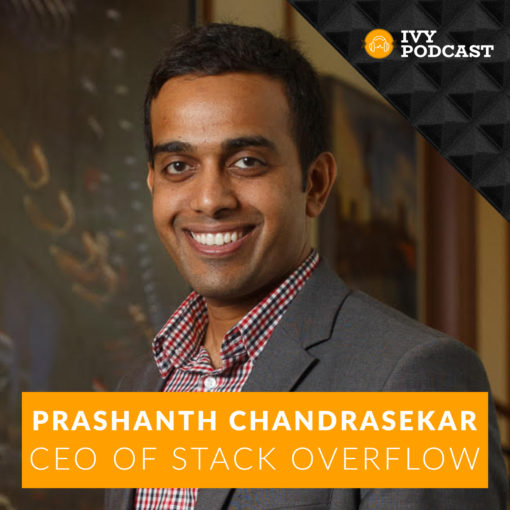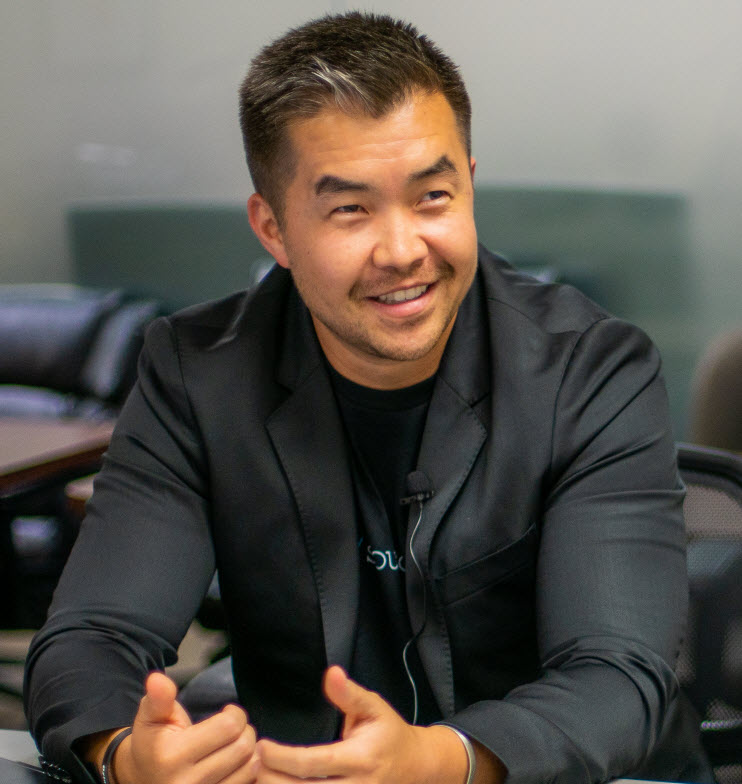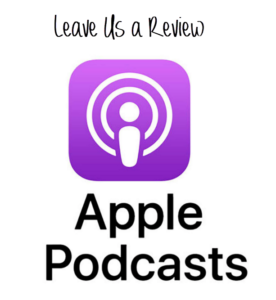
With close to 20 years’ experience working with brands to maximize their partnership investments, Chris brings a wealth of knowledge to lead REV/XP. Chris joined rEvolution from Dignitas, one of the most successful esports organizations in the world, where he led partnerships. Prior to Dignitas, Chris spent time at WME IMG and led T-Mobile’s entry into gaming and esports, securing many first of their kind deals with the biggest leagues, teams, and platforms in the industry.
Episode transcription:
[00:00:21] Rob Mann: [00:00:21] Thanks so much for jumping on, Chris. Welcome to the Ivy Podcast. [00:00:24] Christopher Mann: [00:00:24] Hello, Robert, friend. Last name is very familiar. Have we met before? [00:00:30] Rob Mann: [00:00:30] So the elephant in the room is that crisp is my older brother who has a lot more hair than I do. [00:00:35] Christopher Mann: [00:00:35] Better hair. Better basement. [00:00:38] Rob Mann: [00:00:38] Yes. You were in a cave and I live in Fort Lauderdale and it's been snowing. What do you have? 24 inches of snow right now. [00:00:43] Christopher Mann: [00:00:43] I got a lot of shoveling to do later. You should be happy that I'm not standing up because I have no pants on underneath this wearing sweat pants guys. [00:00:49] Rob Mann: [00:00:49] Also, I saw a very cute photo of my nephew shoveling in front of a snowman earlier. So thank you for that mom. [00:00:57] Christopher Mann: [00:00:57] Much appreciate Henry. Maybe he'll make an appearance. Maybe Henry has made an appearance on some pitches. I was on recently with a wiffle ball bat and it was a floating wiffle ball bat that came up from behind me. And then I saw my wife, Danielle, chasing him as everyone on the call was laughing. And I turned my head just in time to catch the wiffle ball bat, as it almost smashed me in the face. Rob Mann: So those of you that have a deal funny enough? Christopher Mann: No, we didn't get the business, but not because of that. They all laughed. But yeah, I mean, that was the joys of working from home are awesome. And having a 22 month old is amazing. So he definitely helps. He's been helping me shovel all the snow outside. [00:01:38] Rob Mann: [00:01:38] Yes. Actually throwing it on you. And I would like to probably say that Henry is more useful than you were probably as a child cause I had to shovel off. [00:01:44] Christopher Mann: [00:01:44] No, he's good. He's very useful. It's nice, he's a nice little chat. There we go. [00:01:48] Rob Mann: [00:01:48] Anyway. It's good. Good parents. Thanks for, thanks for joining in. You guys, we're going to talk about esports and gaming. It's a super fascinating market growing rapidly. Chris, you want to give your background about Revolut, your background, and then also the background about Revolution. [00:02:05] Christopher Mann: [00:02:05] Rob is more handsome, older, better looking better hair brother. I'm the SVP of REV/XP, which is the gaming and esports division of Revolution, Revolution’s a full service sports marketing agency covering everything from experiential marketing consulting for brands looking to get the most out of their sports investments, including esports and gaming. We do a host of different services, so full service, data and insights, research, media placement, media buying. We run the gamut of services across the board headquartered in Chicago. I'm based here in New Jersey. Of course, many of us are working from home right now, given COVID. And my background, how I got here is that I've spent 15 years on the agency side. I led Campbell Shuggie Soups, NFL partnership for 10 years. You see a lot of NFL stuff behind me, this is usually a really busy time of year for me when I was on the NFL stuff. 10 super bowls that I have the opportunity to go to. And then I transitioned to gaming any sports about five, six years ago, led T-Mobile's entry spent the last few years on the esports team side. Most recently with a team called Dignitas, that's owned by Harris Blitzer, sports and entertainment, Harris splits. They also own the 76 years in New Jersey Devils. Let's go, Devils! And at Dignitas probably most deal that I was most proud of in my career, but also a one that was big for the industry was I did Verizon's first deal in gaming, Guinea sports, where they built dig Dignitas a 5,500 square foot gaming and esports facility in Playa Vista, California. And went back to the agency side about five months ago to help brands like Chipola, navigate their esports and gaming investments. Can I take a breath now? [00:03:42] Rob Mann: [00:03:42] Yeah, that was excellent. You were speed pitching. So guys, the reason why I find this so fascinating, if you're a staffing and recruiting leader is, and I'll let Chris talk about this, but there's a really low barrier to entry, maybe not for esports, for creating content, engaging an audience and doing some advertising through it for gaming. And so Chris, maybe we'll start with, what is the difference between gaming and esports and how easy is it to create content for gaming? [00:04:14] Christopher Mann: [00:04:14] Obviously not easy. I think that it's a question that any brand looking to get in, tap into the massive gaming audience, gaming's a hundred, I think last I saw was the 180 billion dollar global industry, more than music and movies. [00:04:28] Rob Mann: [00:04:28] Nintendo had their best quarter ever last quarter. [00:04:29] Christopher Mann: [00:04:29] Yeah. Animal Crossing came out at the perfect time during the pandemic. People are going on dates. There are late night TV talk shows on Animal Crossing. So I mean this thing, so there's gaming and then there's esports and most brands are like, Oh, we need to be any sports. It needs to be any sports. Well, you actually need to be in gaming. Because gaming is this overarching industry in esports is to competitive play of video games. So you don't necessarily need to be in any sports. It depends on your goals and objectives. The esports is part of what your strategy could be. Gaming is culture, gaming is entertainment, gaming cultures are the melding and merging of fashion, music, movies, video games, events. Everything that comes together in a cultural movement. That's what gaming is gaming and what it means to be a gamer has changed long gone is the stigma of someone in their basement playing video games. Gamers are trendsetters. They're cool. Nerd culture is cool and gamers are gonna break brands in the future. And that's why you're seeing brands like Verizon. And T-Mobile. Red Bull Buffalo, Wild Wings, and so many more brands get involved in poli in this space and will continue to, because you're tapping into the 18 to 34 year old consumer. Now they're going to grow with them and they're going to continue to grow brand loyalty and brand affinity. And hopefully when there're 1830 fields, get older, have families with more disposable income. They're going to be loyal to those brands that were loyal to their a and supported their favorite esports teams or content creators in the future, the same way that we're loyal to the New York Giants and their partners, but even on a bigger level, there's a stat out there that says 65% of esports fans and that will recommend your purchase from a brand that supports League of Legends or League of Legends teams or creators first 14%. If they sponsor traditional sports like the NFL or NBA. Think about that. If you're a brand marketer, you're like, why? Like that's incredible. And that's because there's a two way conversation. That's always happening. Gaming is always on our mom's games. She's not necessarily the hardcore gamer that we're going to market to, but she's a gamer. She games on mobile, 60% of the audience games on mobile. Everybody's a gamer. And I think that two-way conversation, whether you're watching it or playing it, there are brands integrated in it. You're watching your favorite stream or your favorite teams. You're on Discord. You're on Twitter. You're on Twitch. You're on YouTube. There are so many ways to consume gaming content. That's why it's so influential when it comes to purchasing and recommendation, power and influence. [00:07:02] Rob Mann: [00:07:02] Got it. So there are also a lot of podcasts that have a really strong conversion for me. Like, I'll go to the website of a brand, I think it is interesting if I hear it on a podcast, but what you're saying, 65% of consumers, usually 18 to 34, because that's the largest demographic we'll go to. Or support a brand that supports a League of Legends creator or esports team. Is that correct? [00:07:28] Christopher Mann: [00:07:28] Yeah, it's a step from MRI and probably paraphrasing a little bit here and there on that step, but it's an MRI stat from last year. But all you need to know is there's quite a difference between the brand loyalty and support from partnering within the League of Legends ecosystem. And esports in general, I think at least these, it only goes down a few points when it comes to just esports and gaming for traditional sports. So that's what brands are involved. That's what brands are investing, and that's why they will continue to invest now going into the very near future. [00:07:56] Rob Mann: [00:07:56] Got it. And it wasn't fair when I said that the barrier to entry for gaming is pretty low. Can be very high. When you say barrier entries are, you're talking about dollars. Are you talking about like it can be, I mean, there are some teams out there and leagues getting, million dollar plus deals and there's some, but that's esports what about some influencers? I mean, gamers get that much money to do it. [00:08:19] Christopher Mann: [00:08:19] Yeah, for sure. There are content creators, streamers that are strictly gaming, entertainment, not anything to do with these sports that are getting half a million to million dollar deals? It's pretty impressive, but I think it's not, you hear that number and then you're like, I think back in, like, I think about having Drew Brees or like these really big names in these Campbell's commercials and these massive social falling, but it's not apples to apples. So you think of someone like Tim, the TapMan, for instance, 2 million followers on Twitter, 30,000 people tune in every day to watch him stream three to four hours. That's why he's more influential than say like Drew Brees. That's why he's getting paid these six figure potentially seven figure deals out there because the way that he engaged with the audience is so much different. It's so much more valuable for brands than a traditional sports athlete at this point. And that's why these guys are going to continue and women are gonna continue to grow who are over in the space. [00:09:16] Rob Mann: [00:09:16] So I think, and kind of like, correct me if I'm wrong, but it's almost like, and I can't do it, but listening to the Joe Rogan podcast for three hours every day. It's almost like doing that, but living, right. If a streamer… [00:09:28] Christopher Mann: [00:09:28] Yeah, yeah. I mean, listen, it's the same. Rogan recently had her point Jordan Burroughs. Yeah. It's long. It could be long form or short. Here's the great thing about a Twitch stream, a YouTube stream that could be a three or four hour stream. Some of them social members go for 16 hours, 24 hours. They do marathon streams. Yeah, they play with their community. They're engaging with their community. They're there, they're playing, watching, chat and engaging with their chat. Right. They're part of an experience when you watch TV, you're not part of that experience. That's why you see the NFL now on Twitch. Someone like Tim, the Tam in streams, NFL games on Thursday night through the Amazon relationship and he's talking to his chat. It's like, they're watching, especially now during COVID where you really can't go out and have that experience of community and watch games with friends and family. Like you're used to, it's been really valuable. But yeah, I mean, like there's a massive opportunity here. And brands are going to continue to engage, and learn how to engage. And I think that's where my job comes in, right? Like my job is to help brands navigate gaming and esports extract as much value from these creators, these teams, these leagues as possible align their objectives with the strategy. And help them get the most out of it. And that's where an agency like revolution and REV/XP come in as well. [00:10:38] Rob Mann: [00:10:38] Got it. So, and I think you, every so often we're having conversations, you were telling me like, Hey, this brand is interested in coming in, but they have no idea. Or their strategies are off. They're spending too much money. Maybe they're not spending the money in the right spot. A lot of times I feel like that's been happening since you've been in this space. And we kind of just talk when we see each other. So it's, I don't think it's unique to esports, or gaming, but it's definitely the new frontier. Right? So navigating. [00:11:07] Christopher Mann: [00:11:07] Yeah. Everyone says it's the Wild West. I wouldn't, I think that's the term, maybe like 2013, 14, 15, whatever, like, everyone's like, it's the Wild West. You have to be authentic. First off, you have to be authentic in anything you do. It doesn't matter if it's gaming or a matter of T-sports. Doesn't matter if it's an NFL partnership, you have to be authentic. So that's like a buzzword. I think that people who were in the industry early used to kind of scare new people that were coming in, and it's different now. And I think that brands don't, they're used to certain brands are more savvy when it comes to investments with partnerships, because they're used to investing in the major league baseball, spacer, other like NFL, right. Or entertainment music. So, but you can't disvalue things the same way. Because of the things I mentioned earlier. So there are opportunities and those learnings definitely do apply. Markets do, definitely do apply. And the opportunity versus scale is definitely something you need to consider. But I think, understanding all the different touch points and leverage to pull. On a deal in this space. I've seen it countless times where a brand has never done a deal in this space, does the deal far more probably than they should have without the necessarily assets that they should have asked for because they didn't know. And that's where, that's why there are agencies like revolution out there and people like myself that can help these brands come in in an impactful way and feel really good about your partnership, your investment, and work really hard for you. So that you're successful in entering the space like this same thing as we did with the NFL. [00:12:38] Rob Mann: [00:12:38] What it sounds like, and I'm still fascinated by the engagement piece, right? Like, I really think it's powerful that it's easier for you to create a community around a streamer, because they're going to engage with the chat with you. And then that's something I learned watching webinars, and like, if I'm a panelist on a webinar, I'm actually trying to engage in the chat, live with the people in the audience. I just did that last week for the World Staffing Summit. I was. Don't what the panel is basically in the chat, talking to everyone while I was trying to listen, but also stay engaged. So I could see that, it kinda reminded me of that a little different when you're playing Call of Duty, our fall guys are among us and then engaging with your chest. Are they using like a voice to the text? [00:13:24] Christopher Mann: [00:13:24] Well, they usually like I have a screen here. That's why I have this weird glow on my face. And I have a screen here that I'm talking to you on. So if I'm streaming or if I'm chatting, like a dual screen. So I play here like this and I look here and many of them have four or five screens. They have different chats here so they could read it and they understand what's going on. They're sponsors too. Maybe they have their, if they're successful enough, they have partnership script and talking points too, that are fed into them. Maybe that they're really successful. Like someone like a doctor disrespecting a whole studio for history, maybe like a whole real interesting, very highly produced setup, with producers on site. So it's not out of the norm. [00:14:02] Rob Mann: [00:14:02] Got it. Christopher Mann: So that's again, you guys are hearing like the level of production can increase by the amount of time. Amount of followers that you have, or the amount of concurrence, more eyeballs, more money, more money, higher production, better value for, or maybe have better value. It doesn't have to just because it's high production doesn't mean that the value is more or less. [00:14:20] Rob Mann: [00:14:20] Yeah. I mean, that's the thing, that's why I meant low barrier of entry. Right? Cause like if a company wanted to start gaming, right, they could get some assets, set up, some images set up, put them on Twitch or YouTube, have their background of their streets set up and then just jump on and start playing a game, a brand. [00:14:38] Christopher Mann: [00:14:38] Oh. And I would not recommend that I would. [00:14:41] Rob Mann: [00:14:41] Okay. Well I'm just saying like, that could be, if you're a brand, just don't think you can turn on a Twitch. [00:14:44] Christopher Mann: [00:14:44] Yeah. Don't if you're a brand out there, don't think you can just turn on a Twitch channel and people are going to tune in. [00:14:52] Rob Mann: [00:14:52] That's true. But I'm saying like, if you were at a startup and you were just gaming. I mean, you could just turn. [00:14:56] Christopher Mann: [00:14:56] Yeah. I mean, yes, in the synopsis, Sony, not a Samsung, not a T-Mobile. [00:15:03] Rob Mann: [00:15:03] Yeah. Okay. Got it. Very good clarifying point. You would probably want to partner with a streamer under your brand and go to their channel. [00:15:17] Christopher Mann: [00:15:17] You don't sponsor streams that you don't want you to send. You want to hire them as a spokesperson or an ambassador for your brand, the influencer economy, essentially. That's it. [00:15:26] Rob Mann: [00:15:26] Got it. That makes sense. So, are there any other points of entry? Like obviously I messed that up a little bit or maybe oversimplified it. [00:15:36] Christopher Mann: [00:15:36] Yeah, we want to highlight, there are a lot of points of entry. You could work with publishers, publishers control the game, IP, they make the game and you could work with publishers on a variety of different ways to enter. It could be through the game and game IP, or it could be through esports if the publisher offers esports. So for instance, League of Legends. A Riot who publishes the game. You could partner with Riot and League of Legends to the game, or you could partner with the LCS league championship series, which is the esports league here in North America. There's a global league. There are leaks all around. There are 16 different regions all around the world. So that's an entry point. There are teams, teams are really interesting at your point. Obviously I know this one, well, from being on the team side for a few years, teams have what's really big difference. An entry point with teams is that when you do a deal with like, say the New Jersey Devils, you just get the Devils, right? You get the D, you get usage, like collective usage of players. For those of you that know what that means in sports marketing, but you don't get individual players to do things. Maybe you get an appearance here or there. Well, with esports teams, not only do you get access for them to create content because they know their community better than anyone to the team socially, but you also get all the players. So if you're a TMC like Dignitas, which is where I was prior, we were in the League of Legends, LCS is the third most popular league in this country for 18 to 34 year olds. After the NFL and NBA, like, think about that. You get access to all the players in the league. That's the third most popular. All those players are streaming all the time. You get access to, if you have assets like a Jersey Load, but placement in that broadcast. Which is watched by millions of people throughout the year. And then you also get the opportunity to activate it like a Rocket League team or Counter-Strike team or a new Valor and team, or a bunch of content creators can access to everyone.So while there are similar entry points for the leagues and the teams, the teams take it a step further because they give you access to all these different communities. Every game has its own community. Every content creator has their own community. This is a very community driven conversation. There are other entry points, creators, some creators, and streamers, they play for teams. They're part of a team organization. Some are independent. So that's another entry point. There are events. When we're back into a physical world events like BlizzCon or PAX East PAX, West DreamHack. These are great events that people think that gamers just like to sit behind the community, sit on their computer and play games, but they love getting out. They love being together. They play with these people, hours and hours on end. So they want to meet them in person and hang out and have some good craft beer with them and have a fun experience at an event like BlizzCon, and then there are platforms like Twitch. You could do a media deal with which you could do a partnership deal with Twitch to sponsor something like Twitch rivals. That's a nice compliment to a deal that you have maybe with like League of Legends and LCS, you'd get like the Twitch rivals is like a more of an And Entertainment, gaming, tainment style event, less focused on competitive, but then there are also media buys. Pre-rolls in Twitch, same with Twitter, same with YouTube. So there are a lot of different entry points to navigate, and I think that could sometimes be a little scary for brands, but it shouldn't be because all those different entry points are opportunities to get your message and relay your message and the opportunity and value that you're bringing to the gaming community through those different platforms and entry points. [00:18:52] Rob Mann: [00:18:52] How many people showed up to the last live LCS championship? Less live one, where was the last, I wonder if it was in Detroit? [00:18:56] Christopher Mann: [00:18:56] I think it was in Detroit in 2019, because there was not a live one in 2020. So last one was September, 2019 and yeah, I mean, they were at the same arena, Joe Lou, whatever Joe Lewis or what is it? Little Caesars Arena in Detroit, there's 20,000 people there. And then how many? And then by the way, guys, I was in PA, I was in Paris at Eight Core Hotels arena or whatever. However you say it, that was for the League of Legends, World Finals, at least 20,000 people screaming. I've been to Madison Square Garden, sold out for League of Legends events. Barclay Center was sold out for the first Overwatch League Finals. So, these are a considerable audience for these events plus the concurrence chambers, which is actually how audiences are actually judged, right? You're like, think value is the scale, right? The scale of the live stream event is pretty big. And, it's always interesting. Every event is different and every game is different, League of Legends, of course being the most popular, but there are games like Fortnite, that absolutely dominate if they do like at Fortnite World Cup event. [00:20:11] Rob Mann: [00:20:11] Yeah, there was a celebrity with a pro. [00:20:12] Christopher Mann: [00:20:12] Yeah. There are so many different events out there. I mean, Chipola, we do each poli challenges series this year. Last year we had someone from 21 pilots and she just used her Smith. We had some of the best port Fortnite players in the world participating in it. And it's just a really fun event and creating experience and content for people when they're looking for more gaming content, more than ever before. [00:20:31] Rob Mann: [00:20:31] Right. I can definitely vouch for that. So, obviously you've run the NFL. The NFL is a lump, even when the NFL was pretty mature in terms of sports, marketing, and brand opportunity for marketing. But where is, whereas the esports gaming world is immature, but it's growing. [00:20:51] Christopher Mann: [00:20:51] It's growing very rapidly. I think I was interviewed for an article a few years back that was a forced business journal when they were like esports and gaming where they should be now. And I was like, absolutely like, sure esports second has been around since 1972. There's a real fun event, but then it wasn't big, low, and like esports today has only been around since like the probably 2000 tens maybe, call it the Call of Duty events to StarCraft events, League of Legends, came out right around that time, probably LCS and like it's you think about how long the NFL has been around for, or major league baseball and think about how many years and how they've refined their strategy of working with brands and their product. We're in the infancy of the esports space. Now gaming. No similar, but gaming's bigger. Like gaming is, there are opportunities in games to do different things like e-sport as a competitive product to sell to brands is still very new and young. But that being said, there are leaks like the Call of Duty league, or again LCS, LEC, which is the league of legends league in Europe. That's really cool. Rocket league, Rocket league championship series that have really similar entry points on a league level. They are traditionals as traditional sports do and which brands, which resonate with brands. [00:22:10] Rob Mann: [00:22:10] It makes sense. And guys, one of the reasons this was super fascinating to me is when I was still traveling for work where I'd be traveling for seven to 10 business days a month up until the pandemic. Every time I was in the airport, I would be watching kids from any reach group, right? Like under 10 to teenagers on their phone, I'd be sitting at like a restaurant eating in the airport and there'd be somebody next to me at all times, watching someone play video games and there'll be a dad and a mom being like, what are you watching? And then they'd say Fortnite or whatever, or someone played Fortnite. And in my head, I'd be like, why aren't you playing Fortnite? But there really is a strong audience. And I don't think the pandemic changed that they might've even amplified it and expedited. [00:22:53] Christopher Mann: [00:22:53] It there's definitely going to be some stickiness to the people that have discovered gaming content and started playing games, whether it be on their PC or console, there is going to be some stickiness to that content because let's be real. We're probably not getting back into the world the next few years, as we have been in the past, unless I hear you're in Florida, then everything's your game. Anything goes, but at least here in New Jersey, we'll be locked down anyway. [00:23:21] Rob Mann: [00:23:21] Is there anything else that yet, why don't you tell people to keep an eye on a small brand, big brand doesn't matter. [00:23:30] Christopher Mann: [00:23:30] Yeah. Yeah. I mean, if you're interested in League of Legends, when does this come out, Rob? [00:23:35] Rob Mann: [00:23:35] Probably in the next two weeks. [00:23:35] Christopher Mann: [00:23:35] Okay. So I was gonna say February 11th, REV/XP will be hosting our quarterly Reverex Presents and the focus of REV/XP Presents will be League of Legends and entry points. And I'll have someone from Twitch. Some are from G2, one of the most popular teams in the world focused out of Berlin, and as well as Riot on the panel, we'll be talking about really cool. Obviously that's next week. So pending when this comes out, if not, you can get the video on demand and it will be available at revolutionworld.com. I would check out Twitch, check out your favorite games. If you have kids, see what your kids are watching. Because chances are, they're probably not watching a lot of TV content, and they're probably watching a lot of gaming content. And it's funny. I think the consumption of TV has gone down 26% over the last 10 years while the consumption of gaming contents has gone up 27%, a strange correlation there. But it makes sense, right? It's like, you're really similar percentages and increases and decreases. And I think that you'll be pleasantly surprised, by some of the content. Now, listen, there are some of the contents edgy, some of the content you may think is immature pending. Your age or your views, whether it be religion or political or whatever, but this is what people are watching, and this is the future of entertainment. And that's why you're seeing again, the NFL and these traditional sports gravitate towards Twitch hosting the NBA G league, the D essentially to develop last year there. So it's a massive opportunity. There's a lot of really cool content. The cool thing is you can just, you could go on Twitch and watch people work out how you workout with them. You could watch them cook. You watch it payment cold calls. Yeah, you can. The best one is the guy who scammed scammers, kid Bogut. There's a few of those out there. He's one of my favorites and there are some really cool opportunities to engage. If you're a brand and opportunities to grow a future consumer and grow a lot of brand loyalty. And there are a lot of really creative ways to do it. Because, these streamers, you criticize these teams, they know their audiences, they know their communities and they know how to tell stories really well, and in a way that is impactful for the brand, that gets your goal and objective across. But doesn't it in a way that resonates with a younger demographic. And I think that's super valuable. [00:25:49] Rob Mann: [00:25:49] Got it. What game are you playing right now? [00:25:51] Christopher Mann: [00:25:51] I have been playing a lot of Borderlands 3. I love the Borderlands franchise. I've been trying to get you to play, but played League of Legends. I play Call of Duty, but over the last month I've played a lot of Borderlands 3, which is certainly not a top 10 most viewed game on Twitch, but it's definitely got its community right. And it's a fun game. And Kevin Hart, they just hired Kevin Hart to play rolling, which should be really cool. If, when I think of Roland, I think of somebody like LeBron James, in terms of height and stature though, Kevin's kind of Jack nowadays. I thought Kevin, they were going to cast his Claptrap forever. It’s Jack, but I think like his age, I feel like Claptrap would be, it would have been his better cast. Well see, I'm excited that they have such a big talent, like Kevin Hart on it, in anything, hopefully there's not a good history of having successful crossover movies from games to movies. So hopefully Borderlands will be the exception to that rule. [00:26:46] Rob Mann: [00:26:46] I think we sound like men, my wife and I, Mandy found Doom. With the Rock. Was that what he was in like, I've never seen it. It was, Oh, no, it wasn't, was it, it was Doom or something. It was a first person shooter, like an old school computer game. And it was cheap. No, but the Rock, I think the Rock was in this game and he ended up being the bad guy at the end. Sorry, check it out. But it was special. It was pretty special. [00:27:13] Christopher Mann: [00:27:13] Yeah. That's probably playing nowadays, [00:27:14] Rob Mann: [00:27:14] Rob. I'm still playing Overwatch and I'm playing Borderlands 3 when I can. [00:27:24] Christopher Mann: [00:27:24] Yeah. I've been super frustrated by the way, just because the missions take so long and I think, yes, there was, you have to play with me because I'm just running through it right now. Anyway, well, what else do you wanna chat about, Robert? [00:27:32] Rob Mann: [00:27:32] No, that's it, man. I just, mom and dad. I appreciate it. Let's get another, probably New Jersey shoveling snow. Like you're going to be in about five minutes, so I appreciate it. Call us guys. You should definitely tune in to subscribe. Like where can people find you if they want to connect with you? [00:27:49] Christopher Mann: [00:27:49] Send a smoke signal of a gaming controller, no matter where you are in the world and I will see it. And they will run to you with a mask on, no, you can find me on Twitter. It's @ManimalNJ. You could probably link it to Robyn and some sort of description on this. In LinkedIn go to Rob's profile search for man, which he went with UNC on something that I do the two ends and you can appreciate it. [00:28:13] Rob Mann: [00:28:13] [00:28:17] I will link you. [00:28:18] Christopher Mann: [00:28:18] Look at he's kicking me off, seeing my brothers kicking me off his own pocket. [00:28:22] Rob Mann: [00:28:22] I am. Cause , we'll talk forever about nothing anyway, much appreciated guys. Thank you for tuning in and thank you, Chris. Let's go, Devils.
Welcome to Ivy Podcast! On this Executive Leadership Podcast we interview top executives from Fortune 500 with a focus on strategy, innovation, negotiation and everything about leadership.
Our Podcast for Executives features Thought Leaders who share practical insights for effective leadership, continuous innovation and strategy execution.
Ivy Podcast is a rapidly growing Executive Podcast, which covers topics like Hiring and Retention Strategies, Talent Acquisition, Innovation, Digital Transformation and much more.
On this Leadership Podcast, you will find conversations with the most accomplished executives from Fortune 100 companies. We aim to cover a broad range of industries and create a learning platform for the most ambitious and high potential professionals who are looking to learn from the most accomplished Executives on this Business Leadership Podcast.













